A passion for sour beers and a commitment to barrel ageing led Sean McVeigh from a career in hi tech industries to the world of brewing. And if the reception his young brewery has already received is anything to go by, we should all be thankful he made that jump.
Co-Producer: Johnny Leung | Photos: Jakub Mulik
“I like it when I make a beer that I’ve never tasted before,” explains Sean McVeigh, founder and brewer at Ottawa’s Small Pony Barrel Works. “You should never lose sight of the desire to experiment and innovate when it comes to beer and for me, barrel ageing is the perfect canvas for that.”
And since McVeigh threw open the doors to his Kanata brewery back in 2017, his barrel-aged creations have proved to be a willing canvas indeed, resonating with drinkers of all kinds and more importantly, not just with beer enthusiasts.
It’s the latter however, that helped drive Small Pony Barrel Works to lofty heights so early in its lifetime. The brewery was rated among the best new breweries in Canada at the latest RateBeer Best Awards.
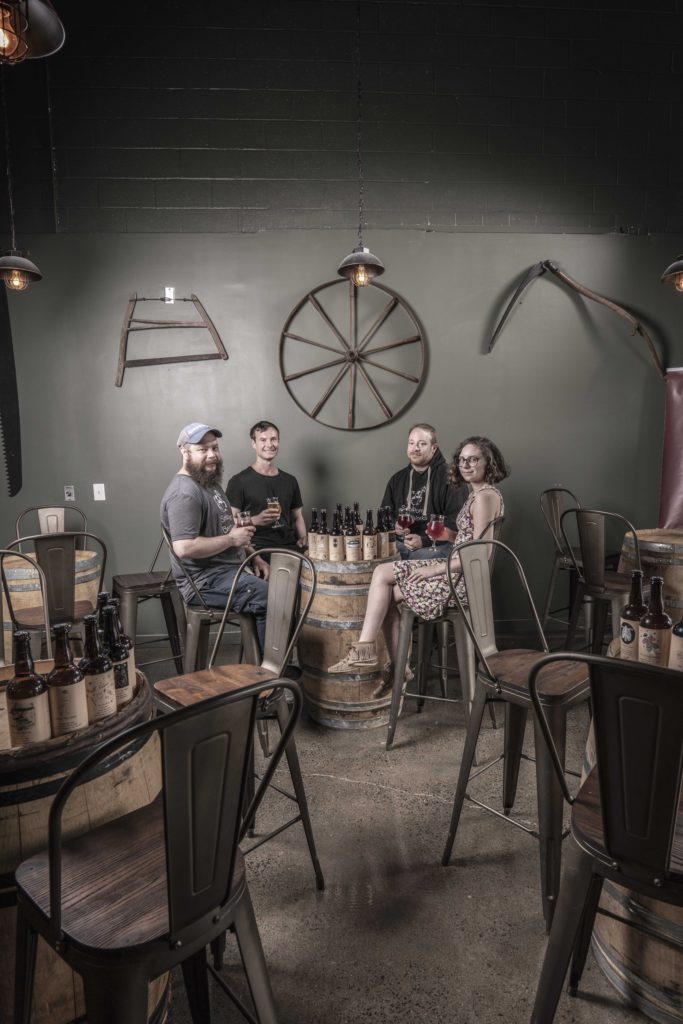
Elsewhere, the Ontario outfit stands as the fifth highest rated Canadian brewery on ratings site Untappd, with more than 10,000 ratings and an average score of 4.073. Not bad for a brewer that started out experimenting in the world of homebrew kettle sours that were “no doubt the worst beers in the room” at the local homebrew club gatherings he attended.
“It’s great to see people enjoying the beers we produce,” he says. “I try not to pay too much attention to such ratings but people are into craft beer because they want something different from the norm, so it’s gratifying to see those beers strike a chord with them. The challenge is to keep up that momentum, especially when we’re in the world of making slow beer!”
That said, McVeigh put out a fair few beers in 2018. Something he’s continued to do into 2019, too.
A passion for sours was nurtured in the formative years of his beer journey. The sampling of well-made sours at the aforementioned homebrew clubs, complemented by the sporadic seasonal availability of beers from brewery’s like Belgium’s Rodenbach gave him a taste for more.
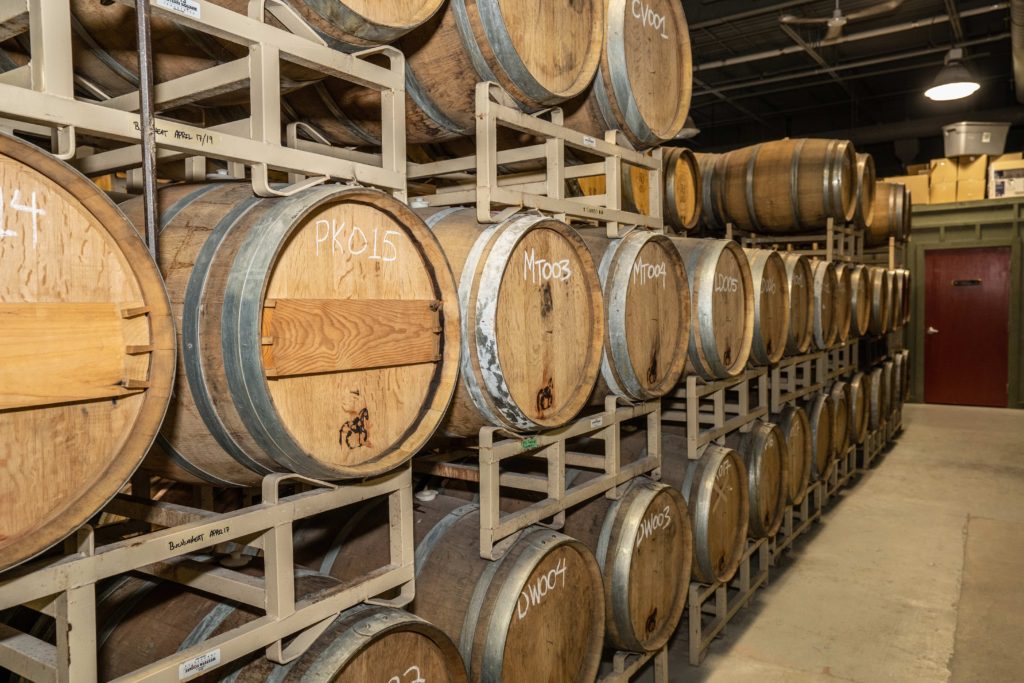
And a road trip three years ago from Portland, Oregon to San Diego allowed McVeigh to visit other breweries he admired such as Rare Barrel from Berkeley, California and Portland’s Cascade Brewing, both famed names in the world of modern sour beers.
“To spend time at those breweries, having great conversations and learning about their art really opened my eyes,” he recalls.
McVeigh returned home imbued with a sense of destiny, knowing his own sour beer brewery, focused exclusively on barrel-ageing, was calling.
“I found myself in a position where I had to question if this was something I could do from my home. I had my first wine barrel and an idea of filling it from my homebrew system. Could I use the space in the garage to store more barrels in the future and sell beer from there?” he asks.
The answer was no.
Conversations about teaming up with a neighbour were mooted. Then came the possibility of purchasing a modest kit from a peer at Nepean-based Evergreen Craft Ales became an option.
Another possibility was buying wort from nearby Big Rig Brewery and using that to fill the growing number of barrels McVeigh had in mind for his business.
But no.
“It seemed feasible until we discovered a provincial regulation that meant you are unable to sell beer from that type of site, unless 100% of it was produced there,” he says. “It’s somewhat outdated, but I can also see why it exists.”
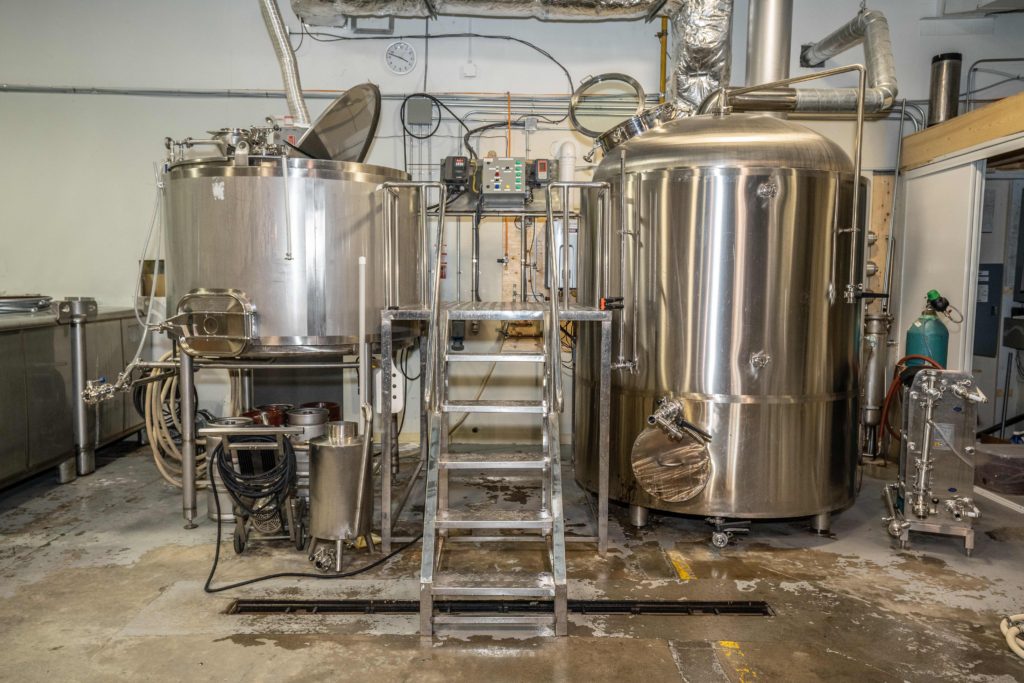
However, following another period of research, the best option for McVeigh would become apparent. A friend looking to invest in a steam kettle had a 2000l gas-fired kettle available. A mashtun was procured from another friend, kit that needed some $8000 of modifications with the addition of a false bottom, manifold and rakes.
With the kit part of the equation solved, a suitable facility was needed, too. And thankfully for McVeigh, that would prove to be somewhere particularly familiar in the form of his old Karate Dojo, where he earned his blackbelt in the martial art, no less.
“The owner needed to downsize somewhat and with that, the opportunity became available. Sure, it needed a fair bit of work but it had high ceilings, which was a great asset for us,” he explains.
McVeigh had the keys to his brewing home in February 2017 and brewing would commence in earnest three months later.
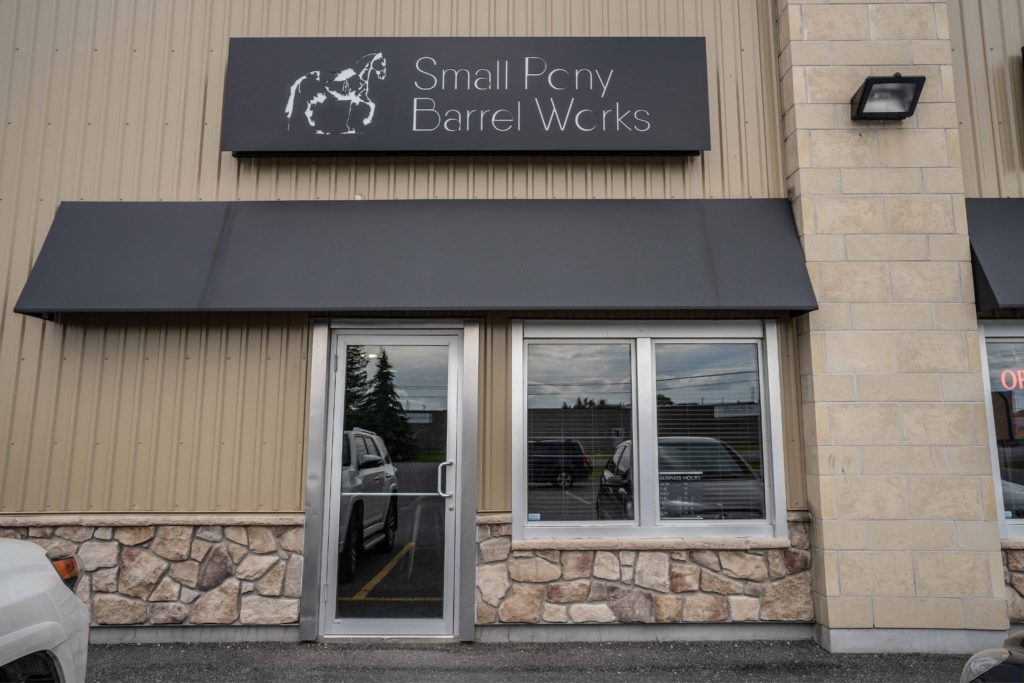
“We had great support from the Business Development Bank of Canada and also Royal Bank. But there were a great deal of conversations to be had, too,” he recalls. “They had dealt with a fair number of breweries before, but we were a new proposition to them.”
He adds: “Our model required a long runway before the first beers would see the light of day, with around eight months before the first beers were out the door.
“The need to pay wages, buying ingredients and accruing other expenses while not selling our beer was an idea that we had to get across. We likened what we did to a winery rather than a traditional brewery.
“It made us think of the ways we could produce beers in, say, three months, but the hunt for something we are happy with in that timeframe continues. We wouldn’t put something out if we weren’t 100% happy with it.”
For McVeigh, most of the time he and his team spend is “moving beer around” rather than making it so with that, there was the small need for barrels to age their beer in. And with that, California, once again, came calling.
“I found an online broker that had worked with companies such as The Bruery, so I knew I would be in good hands. I just wanted to see if they were real!” he laughs. “I flew to meet them and that day they were in the process of unloading a truck full of barrels. I liked what I saw and asked them to put them straight back on. All 180 of them.”
It was a considerable investment, but McVeigh knew it was cheaper to buy in bulk. It was also more convenient than relying on the sporadic supply available to him closer to home.
He opted for neutral barrels, which he considered ideal for the type of beers Small Pony would be producing. Following the first year of use, a wine barrel ends up losing much of its flavouring ability. After three or four years, it is then considered a neutral barrel. Of course, wines can still be fermented or aged in such vessels, allowing for the slow introduction of oxygen into the wine. This method of ageing often tends to soften wines but without the addition of any extra flavours.
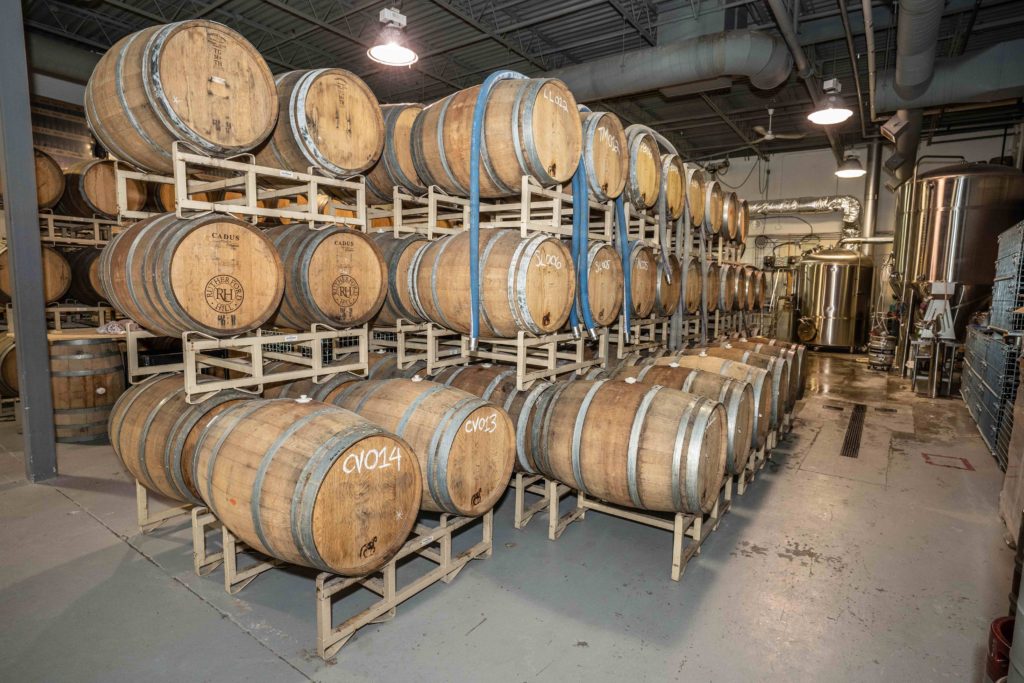
Beers McVeigh and his team have produced to date include A Lonely Forest. This is a spontaneous golden sour beer aged in oak barrels. The golden sour wheat beer was inoculated in the traditional Belgian fashion of spontaneous Lambic beers.
While it was still boiling, they transferred it outdoors into a shallow tank to cool down naturally overnight and allow the wild yeasts and bacteria in the air to float down and begin the fermentation. It was then aged untouched in two oak barrels for one year before bottling and naturally carbonating.
Another number is the 5% Half Remembered Dream, a blend of golden sour beers aged in oak barrels with rose hips and hibiscus.
Elsewhere you have One Year Wiser, a golden sour beer aged in oak barrels with Chardonnay musqué pomace and tonka means. The beer was blended in collaboration with the brewery’s friends at Bar Lupulus to celebrate their one year anniversary. Coincidentally, the release also marked one year since they added Chardonnay Musqué wine pomace from Trail Estate Winery to barrels of one of its golden sour beers. The addition of Tonka beans lending a complex vanilla, almond character.
“That one was fun to do,” McVeigh recalls.
Such beers have resonated with beer fans and non beer fans alike. Something McVeigh is particularly proud of.
“I’ve had wine drinkers that always turn down beer go on to try what we do and change their perceptions of what beer can be,” he says “We’ve also had restaurateurs comment on the complexity of the beer, and how it stands out. That means a lot.”
You can’t please everyone, though.
“We’ll still be part of brewery tours where there’s a sense of disappointment that we don’t offer a Lager or an IPA. But that’s not who we are, there’s plenty of choice out there if you want that,” he says.
McVeigh laughs: “We had one visitor from the Czech Republic and the only question he asked was ‘Why are on earth have you done all this?’.
“So yes, you can’t please everyone. We’re a niche in an already niche market. But we have belief in what we’re doing and people are enjoying what we’re doing, too. One thing is certain, we’ll never stop experimenting.”
